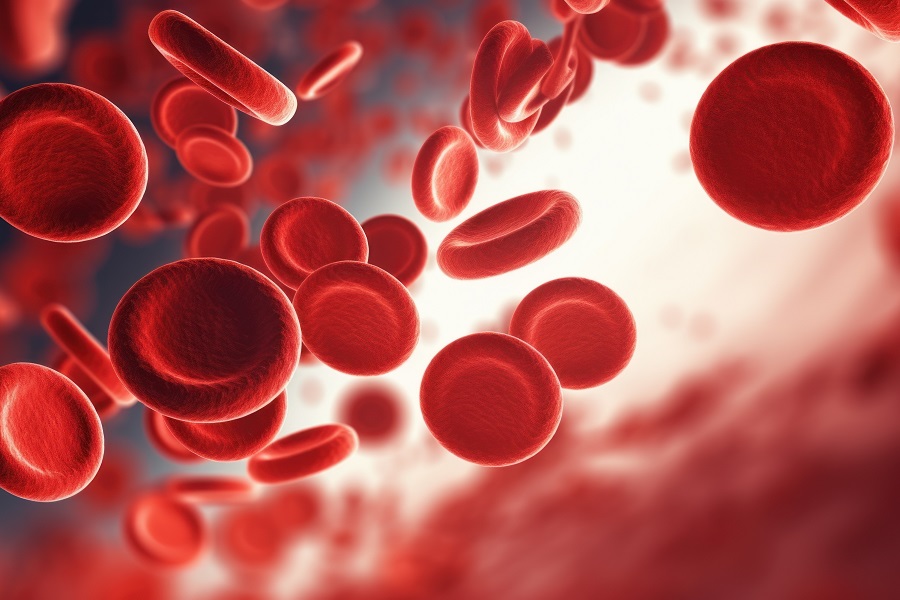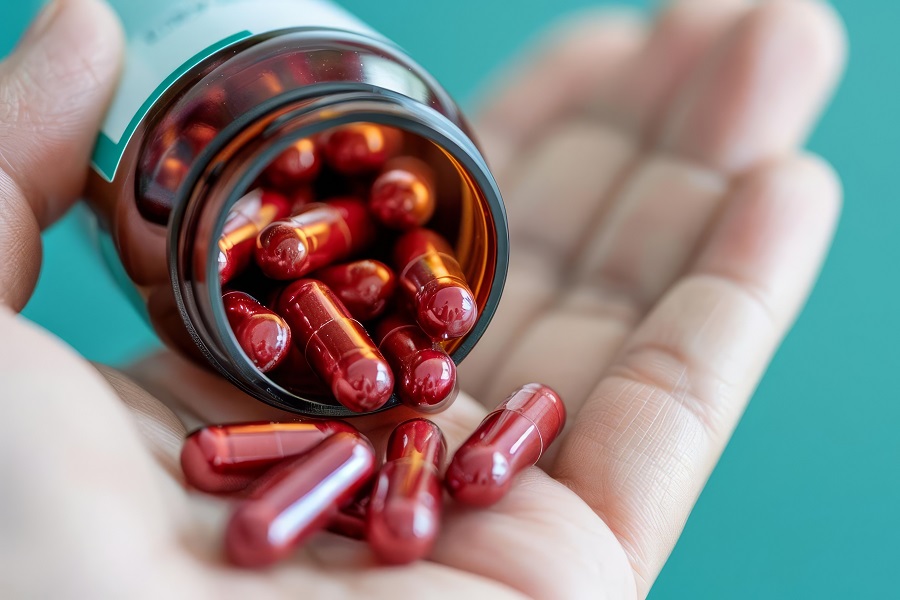Researchers have developed a new supplement combining iron, prebiotics, and probiotics. In their trials, the formula restored blood iron levels in anemic mice without triggering inflammation or disrupting the balance of the gut microbiota.
To treat iron-deficiency anemia, clinicians typically prescribe oral iron supplements. However, these can leave behind excess iron that causes inflammation and an upset stomach, the team highlights.
“By advancing biomaterial-based iron delivery, this research offers a transformative approach to address anemia, directly contributing to improved nutrition and long-term public health,” says study co-author Poonam Sagar.
Iron deficiency anemia commonly causes tiredness, headaches, or shortness of breath. However, only a fraction of the iron within the tablets used to treat the condition is absorbed into the body, note the scientists.
Countering irritation while boosting absorption
Leftover iron from supplementation can cause an imbalance in the gut microbiome, resulting in irritation and/or inflammation. This is why iron supplements are sometimes co-prescribed with probiotics to help beneficial bacteria proliferate.
Scientists have previously combined iron supplements with probiotics into a single treatment option. The authors of the new study took this approach a step further by adding prebiotics that feed the probiotic bacteria.
 After two weeks, mice fed the supplement restored hemoglobin levels.The resulting trifecta iron supplement could be more effective than existing options, they suggest.
After two weeks, mice fed the supplement restored hemoglobin levels.The resulting trifecta iron supplement could be more effective than existing options, they suggest.
The team combined dietary fiber from millet grain, probiotic Lactobacillus rhamnosus bacteria, and an iron-containing complex to form the supplement.
They tested the treatment’s biocompatibility in human cell cultures and demonstrated its effectiveness in mice with iron-deficiency anemia.
Two-week results
After two weeks, mice fed the supplement restored hemoglobin levels (the primary iron-containing molecule in red blood cells). They excreted similar amounts of iron as a control group of non-anemic mice, indicating successful iron uptake by the body.
The researchers observed an upregulation of genes associated with iron transport via red blood cells, which indicated that iron metabolism was restored.
Meanwhile, the colon had a “minimal” inflammatory response. Populations of beneficial gut bacteria were also restored compared to those of the anemic mice.
While further studies are needed, the researchers believe this initial investigation provides a more effective iron supplement treatment option that minimizes side effects. Their findings are published in ACS Applied Materials & Interfaces.
Prevalent iron deficiency
Iron deficiency affects many US adults, even healthy individuals without anemia, based on a survey of 8,021 US adults. Further studies are needed to determine the optimal absolute screening strategy, as most screening recommendations potentially “miss 70% of iron deficiency cases among children and during pregnancy,” according to the survey authors.
In other iron supplementation research, a recent study demonstrated how Lubrizol’s proprietary microencapsulated iron ingredient, Lipofer, “significantly outperforms” traditional forms of iron, like ferrous sulfate, ferrous bisglycinate, and other encapsulated iron salts.
Earlier this year, the WHO officially included PharmaNutra’s Sucrosomial Iron technology in its guidelines to improve global blood health status. The patented delivery system is designed to protect micronutrient molecules such as iron, increase their absorption, and improve their gastrointestinal tolerability. It features in PharmaNutra’s SiderAL range of iron supplements.

